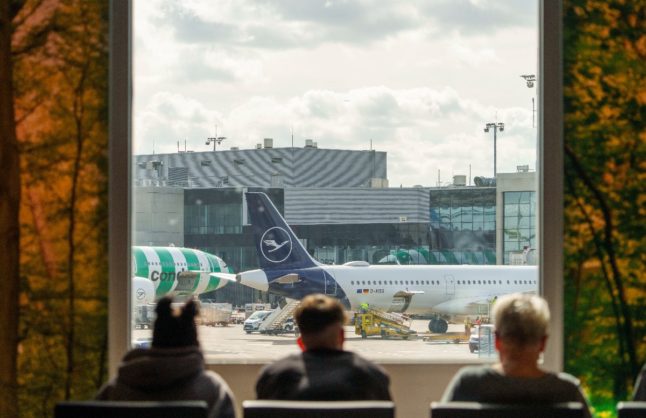Money left in a standard checking account, or a low interest savings account, loses value over time as inflation gradually reduces its purchasing power.
Alternatively, deposits kept in savings accounts will increase in value over time, provided that the interest rate outpaces inflation.
With interest rates expected to remain high through 2024, now may be a good time to consider depositing some savings in an account with a high-yield interest rate.
Flexible savings accounts versus fixed-term deposits
If you want to open a high-yield savings account in Germany, there are basically two types of accounts to choose from: a flexible savings account (Tagesgeldkonto) or a fixed-term deposit (Festgeldkonto).
A flexible savings account, also called an ‘instant savings account’ or a ‘money market account’ in English, offers an easy way to earn some interest on your money while being able to access it at any time. This makes the flexible savings account ideal for holding money that you might need to use in the near future.
Interest rates on flexible savings accounts vary from bank to bank, and they can change depending on external factors such as the key interest rate of the European Central Bank, or the current market conditions.
The central bank’s interest rates remain high so far in 2024, so it is possible to find German flexible savings accounts offering interest rates of up to 4 percent.
On the other hand, a fixed-term deposit, or term-deposit account, requires you to deposit your money for a specific amount of time, running from some months to several years. Fixed-term deposit holders aren’t able to access this money during the term in which it is being held.
Banks tend to offer higher-yield interest rates in return for their customers’ commitment. So a fixed-term deposit is a good choice for people looking to grow their money securely, but won’t work for anyone who may need to access their deposit in the short term.
Interest rates on fixed-term deposits are based on the deposit amount and the duration of the deposit. Once a fixed term deposit is locked-in its interest rate won’t change, which shields against decreasing interest rates but also prevents you from benefitting if interest rates happen to rise.
READ ALSO: ‘Move into this century’: How Germany could improve its banking system
Which German savings account type is best for me?
Banks constantly adjust the interest rates they offer customers based on factors like the interest rate set by the European Central Bank, but also based on their own internal calculations, or as a means to compete with other banks.
Also bear in mind, that many accounts will offer a higher rate in the short term, followed by a lower rate after that. For example, many banks will guarantee an interest rate up to 4.5 percent for the first three to six months for new customers, but after those months pass that rate typically drops closer to one percent.
If your goal is to securely grow a deposit in the short term, you’ll want to look for the highest short-term rate. Whereas if you plan to store your money safely in an account for a longer time, you’ll be better off looking for a higher long-term rate or considering a fixed-term deposit.
Which banks are offering the highest yields now?
Keep in mind that it’s always worth looking at some different options before choosing a bank, because the interest rates they offer are changing.
But a good resource to start with is the German economics newspaper, Handelsblatt, which recently published an article comparing some of Germany’s best performing flexible savings accounts.
According to their analysis, Trade Republic, TF Bank, Renault Bank direkt, ING, Comdirect, Consorsbank, Openbank, Commerzbank, Opel Bank, Bigbank and bunq are all offering competitive interest rates of 3 percent or more for customers in Germany at the moment.
Of these bunq, TF Bank, and Commerzbank are known to offer services in English.
Additionally, Handelsblatt looked at fixed-deposit accounts, and compared a number of the top options in Germany side-by-side. In addition to some of the banks mentioned above, they compared fixed term deposit options offered by Postbank, Klarna, Bank 11, DKB, SWK and Suresse Direct Bank among others.
READ ALSO: TELL US – What are the best banking and money saving options for foreigners in Germany?



 Please whitelist us to continue reading.
Please whitelist us to continue reading.
Member comments